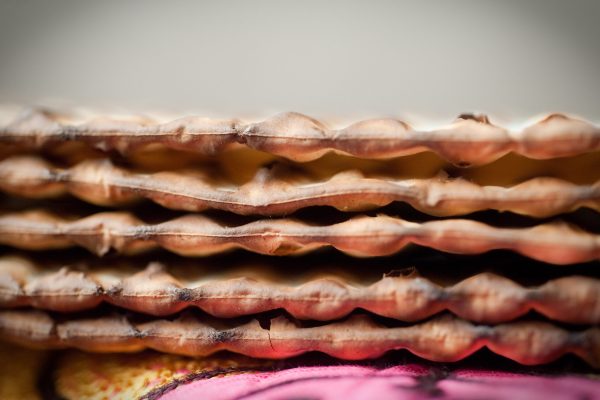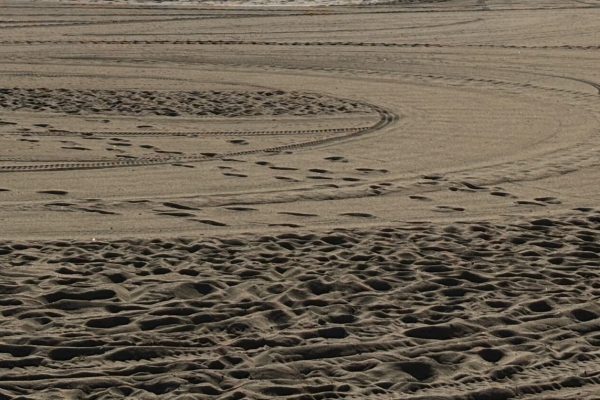After the vaccine, we slowly begin to engage in a list of “safer” activities, previously postponed.
A dentist appointment, getting hearing aids, a gathering at the house.
I walk to the bank to retrieve the thumb-drive. Photos of my parents who have been dead for several years.
My ancestors speak to me there in that small, windowless room, in the back of the bank.
Just me and the long, metal box. And their voices.
They surprise me. They demand something of me.
They grab, grasp, reveal.
They confess, plead, regret.
They celebrate, invite, even sing.
“Listen to the voices speaking from the box,” they say.
Two green jade necklaces laying silently on top of crumpled envelopes. Gently welcoming me inside.
A handwritten letter from a man grieving the lack of his integrity. The friends he lost because of his lies.
The 80th birthday celebration invitation—a photo of when young dad was in the army.
The black-and-white folded form ketubah with Hebrew names I never knew.
The letter from my older sister: the last words she left us before she ended her life. The cry of her desperate 21-year-old handwriting on a small piece of yellow, lined paper.
Her words drip with history and detailed planning. How much she misses us and how sorry she is. I feel her love for each one of us—sister, brother, mother, father. And the regret for her life.
She decided to die before she was called home. Or maybe she was called, and we just can’t understand. We always call her Julie, but she signs the paper left on the bed-stand in a motel room with the name Julia.
My grandmother’s three thimbles that helped sew those marvelous creations. Satin, velour, beaded dresses, and jackets with padded shoulders and intricate buttons. Oh, how I miss her warm, rocking lap.
My mother’s rushed and excited note to her parents, conveniently saved in their wedding announcement. “Darlings, you won’t believe what I have to tell you!” (“Don’t forget my handwriting,” Mom whispers to us across time.)
After dementia wouldn’t let go, fifty announcements of their new address carefully designed with loving photos, colorful hope, saturated with grief. Stuffed into envelopes ready to go. Never mailed.
Silver dollars saved for decades from every Hanukkah or special occasion. How many hands touched these coins?
The birth certificates of those I never knew.
The court decree of the Guzuvsky name-change to Gusfield. Running from anti-semitism.
Why do they call it a safety deposit box? It takes my breath, squeezes my throat, and tears me open with aching connective tissue.
It’s not a safe box. Let’s call it an invitation from the beyond.











